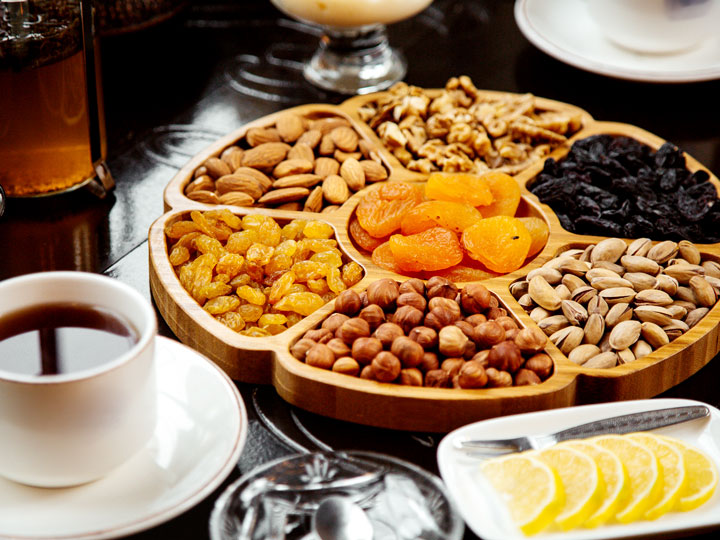Strengthening the immune system

Today, at the time of COVID-19, it has become crucial to strengthen your immune system.
First, we must carefully follow the measures taken to contain the virus:
- stay at home as much as possible;
- work from home if possible;
- avoid crowded areas;
- stay at least one metre away from other people;
- avoid hugs and handshakes;
- regularly wash your hands for at least 20-30 seconds with soap and water, especially before eating and when you are away from home;
- if you do not have running water, wash your hands with an alcohol-based disinfectant;
- cough and sneeze into your elbow joint;
- try as much as possible not to touch your face – particularly your mouth, nose and eyes – with your hands;
- avoid touching surfaces in public areas as much as possible;
- if you have a fever, cough and/or chest tightness (respiratory infection) stay at home and call your doctor, or the NHS 111 service rather than 999, avoid contact with family members and regularly disinfect surfaces if you live together (ideally dedicate one room those who are sick);
- do not take antiviral drugs and antibiotics unless they are prescribed by your doctor;
- clean surfaces with disinfectants containing chlorine or alcohol;
- only use a face mask if you suspect that you are ill or if you are caring for sick people.

Although we know that this period will eventually come to an end, at an individual level we must try to strengthen our immune system.
How? There are various techniques we can use and actions we can take every day...
Here are some tips and suggestions that may come in use:
PROBIOTICS (LACTIC FERMENTS) to strengthen the gut flora.
The immune system is not located in a specific organ, however its control centre is the intestines, which are where the “orders” come from.
In studies conducted in recent years, various doctors have even gone so far as to refer to the intestines as our second brain.
So to strengthen the whole immune system the first step is to have strong gut flora.
Usually people make the serious mistake of thinking that lactic ferments should only be taken when you are sick. But this is not the case. They are equally useful when you are healthy.
You can find various types and grades in pharmacies, supplements and even just at the supermarket.
The important thing is to take them.
VITAMIN C and VITAMIN D
Vitamin C is the “queen” of vitamins that you should never lack.
It is the essential primary defender of our body, but unfortunately it cannot be stored in the body and must be regularly replenished through nutrition.
Vitamin C is mostly contained in fresh food: in certain types of fruit and vegetables such as oranges, strawberries, tangerines, kiwis, lemons, spinach, cabbage, cauliflower, broccoli, tomatoes and peppers.

Vitamin D, known as the “sunshine vitamin”, is synthesised by our body through the skin’s absorption of sunlight.
It is so vital for our body that it is referred to as a “para-hormone”. Firstly, it is crucial for the skeletal system because it keeps bones strong and healthy: on the one hand it is necessary for their growth, on the other it prevents fractures and osteoporosis.
Vitamin D stimulates absorption of calcium and phosphorus, as well as facilitating their storage.
It also stimulates the immune system, reduces inflammation and prevents infections.
It is barely present in food (certain oily fish, milk and dairy products, eggs, liver and green vegetables), except cod liver oil.
It is therefore very important to take it orally.
PLUS: ZINC is an essential mineral involved in many metabolic processes throughout the body. It regulates immune responses by stabilizing the cell membrane and interacting with platelets. The main sources of zinc are liver, beef, lamb, pork, prawns, oysters, mussels, chickpeas, lentils, beans, hemp seeds, pumpkin seeds, sesame seeds, cashews, walnuts and dark chocolate. It should preferably be taken before you sleep together with magnesium.
VEGETABLES
The most important supplements of all: vegetables.
It is recommended that you consume a large amount of vegetables and fruit, as well as dried vegetables, nuts and wholemeal products, to ensure that you include enough secondary plant substances in your diet.
A fundamental rule of thumb is to eat plenty of vegetables at every meal, especially seasonal vegetables, which have strong antioxidant, antibacterial and anti-inflammatory properties.

REGULAR AND INTENSE TRAINING ACTIVATES THE LYMPHOCYTES
To boost the immune system, you should ideally do moderate training with short, intense exercises, since an excessively long, strenuous workout can have the opposite effect.
To stimulate your immune system, you should train almost every day of the week, which will enhance your sense of well-being.

So now let’s take care of our immune system and those of our loved ones!
#STAYATHOME


